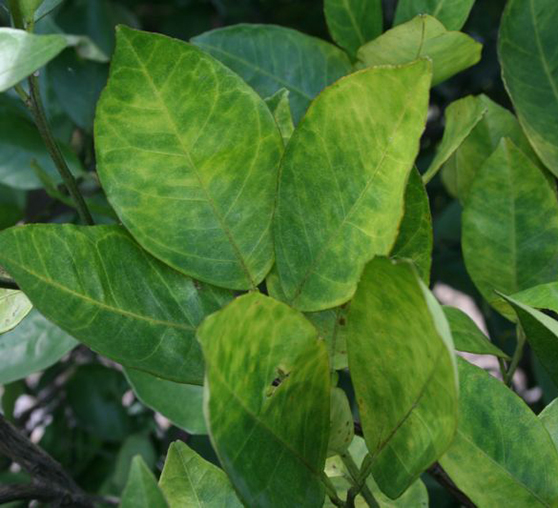
Temperatures are increasing across Florida. Unfortunately, so is the risk for citrus greening disease.
While the southern and central portions of the state remain vulnerable to Huanglongbing (HLB) or citrus greening, and Asian citrus psyllids (ACP) – the vectors that cause the most economically damaging citrus disease in the world – growers in North Florida and South Georgia are still preserved from this devastating disease.
Xavier Martini, UF/IFAS entomologist at the North Florida Research and Education Center (NFREC), cautions producers to stay alert and keep an eye on potential new infestations. It is extremely important to scout trees for HLB symptoms.
No case of citrus greening has been observed in commercial groves west of the Suwannee River. Citrus producers in that area want to keep it that way.
“This success can be credited to ACP early detection, rapid eradication of the population and removal of infected trees when possible,” Martini said in the most recent Cold Hardy Citrus Connection. “In the war against HLB, early detection is key. ACP adults tend to aggregate on flush, and ACP nymphs only feed and develop on them. Those flush should be the prime focus of any sampling effort against ACP.”
How to Scout
Producers need to sample at least 10 flush on 20 different trees on each border of the grove. Growers need to notify their local Extension agent immediately if psyllids are discovered. It is also recommended that any citrus within a five-mile radius be sprayed as well as other groves where workers may have traveled.
In short, Martini recommends a five-point strategy to preserve groves.
- Scout your grove regularly, especially between June and November.
- Act accordingly. If you find Asian citrus psyllids, do not wait. Treat with a foliar application. Scout your grove a week later to see if application has worked.
- Find trees with HLB. Send any suspicious samples to plant clinic at NFREC.
- Educate your neighbor and colleagues about the need to control ACP and to monitor for HLB.
- Remove any tree immediately that’s positive for greening.









